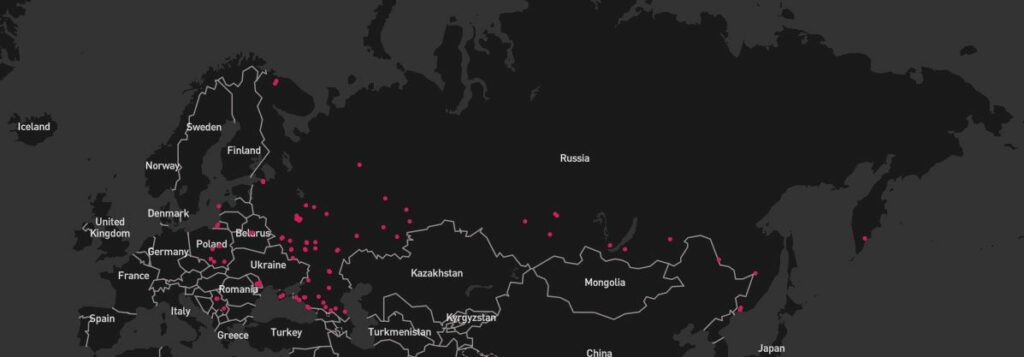Overview
Since the start of the Russia-Ukraine conflict in February 2022, Osprey Flight Solutions has recorded multiple false bomb threats made against airports in several European countries, as well as against aircraft conducting flights to/from European airports. While there is no known direct link between them, the timing of the threats and the countries targeted indicate a potential connection to the ongoing conflict; countries affected by these hoax threats in the past seven months have included Russia, Belarus, Moldova, Poland and Serbia.
While bomb threats against aircraft or airports rarely translate into actual attacks, they are likely to cause disruption in the short term due to heightened aviation security measures at the affected airport, including potential evacuations of both staff and passengers from airport terminals and/or aircraft whilst checks for explosives are carried out. Indeed, while there are various motivations for making bomb threats, the resultant disruption is frequently the primary aim. There remains a distinct possibility that individuals or groups with political motives are targeting airlines/airports in the aforementioned countries in an effort to disrupt aviation operations in Europe based on rival pro-Russia and pro-Ukraine agendas.

Russia
Bomb threats have been a notable aviation security concern in Russia in recent years – an issue that has persisted since the beginning of the Russia-Ukraine conflict. Since the start of February, Osprey has recorded more than 90 bomb threat incidents related to Russia, including bomb threats made against Russian airports and on flights to and from the country, which is significantly higher than the number recorded in the same period last year.

As a recent example, passengers and staff at Volgograd International Airport (URWW/VOG) were evacuated for almost two hours on 7 September while checks were carried out after a bomb threat was made against the installation; no explosives were found during the searches. Additionally, the Moscow area airports – Sheremetyevo (UUEE/SVO), Domodedovo (UUDD/DME), Vnukovo (UUWW) and Zhukovsky (UUBW/ZIA) – have been subject to false bomb threats on several occasions.
Serbia
Since March, there have been a number of reports of bomb threats against Belgrade (LYBE/BEG) and Nis (LYNI/INI) airports as well as against Air Serbia aircraft operating to/from Russian airports; the Osprey:Explore graph below shows the significant increase in aviation security incidents in Serbia from March to May.

Serbia has maintained close ties to Russia amid the ongoing conflict, and Air Serbia is one of few airlines still allowing passengers to fly directly between Russia and Europe in the wake of the Russian invasion of Ukraine. In April, Serbian President Aleksandar Vučić accused Ukraine and an unnamed EU country of being responsible for the bomb threats targeting Air Serbia’s aircraft.
Moldova
Since early July, Moldova has been subject to frequent bomb threats against buildings, mostly in the capital, Chișinău, including at Chișinău International Airport (LUKK/KIV). The Osprey:Explore graph below shows the significant increase in aviation security incidents at the facility from July. Since 5 July, Osprey has issued nine alerts on bomb threats made against Chișinău Airport. The multiple false bomb threats throughout July led to significant disruption to the airport’s operations. However, from 29 July, security procedures at the airport were enhanced as part of efforts to ensure the security of the installation and reduce the time taken to determine whether a bomb threat is likely to be authentic.

Moldovan prosecutors reportedly believe that the wave of bomb threats targeting the country is linked to the European Commission granting Moldova, as well as Ukraine, the status of ‘candidate country’ for membership of the EU on 23 June, which Russia denounced. Also of note, flag carrier Air Moldova recently announced that it would resume direct flights between Moldova and Russia on 1 October.
Outlook
As stated above, there are various possible motivations for making hoax threats; for example, a personal grievance against an airport and/or airline, or an attempt by a late passenger to delay the departure of a flight. Some threats may even be copycat incidents. While it cannot be conclusively stated that the bomb threats that have affected several European countries since Russia’s invasion of Ukraine are linked to the conflict, it is likely that this has been, to varying extents, the motivation for a number of the threats. As such, threats are likely to persist whilst the war continues. Significantly, any geopolitical developments on either side of the conflict are likely to motivate further hoaxes, as highlighted by the campaign of bomb threats targeting Moldova. Osprey will continue to monitor bomb threats that affect aviation globally.







